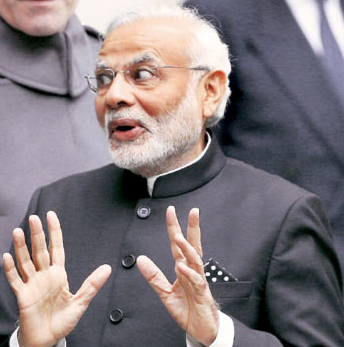New Delhi, Nov 19: Even as a heated debate on "rising intolerance" continues in India, Prime Minister Narendra Modi has said that one of India's "tremendous social strengths" is its pluralism.
"India has tremendous social strengths, including pluralism..." Modi writes in a column in an upcoming, special issue of The Economist magazine.
The cover story of the 30th edition issue of the magazine is titled "The World in 2016". The issue will include caricatures of world leaders including PM Modi. It will also include contributions from International Monetary Fund chief Christine Lagarde and Nobel Peace laureate Malala Yousafzai.
Excerpts from the issue were tweeted by the magazine's Paris-based correspondent on Wednesday.
Modi has talked about India's diversity a few times lately, following scathing articles on his government that have appeared in both Indian and international publications. Critics continue to say that the BJP Prime Minister has failed to check "intolerant" comments about minorities that are being made by a section of people in his party and its affiliate organisations. Last week, during his three-day trip to the UK, Modi stressed India's diversity, calling it the country's "strength and pride".
In his column for the British magazine, PM Modi also addresses other developmental issues that are being faced by the country. He writes about the larger impact India's growth will have. "We are conscious that our growth...will have some environmental impact," he writes, ahead of the Climate Change summit in Paris.
The Prime Minister has referred to the "great expectations" from his government, which completes 18 months next week.
"Inevitably, some of these expectations run ahead of us," Modi writes.





Comments
Add new comment